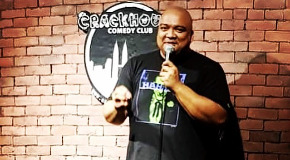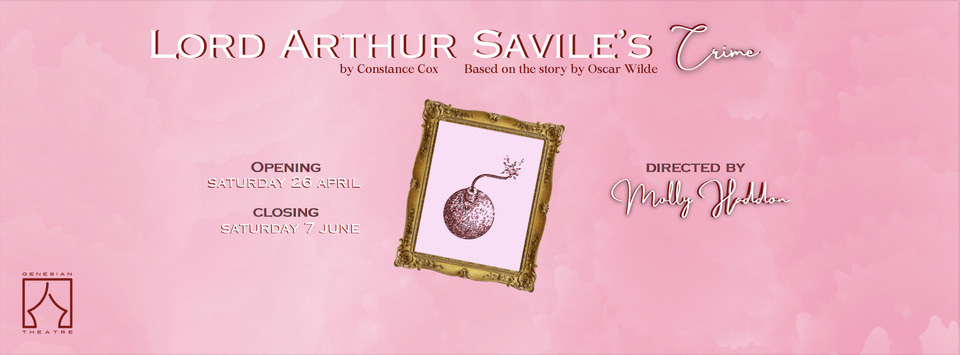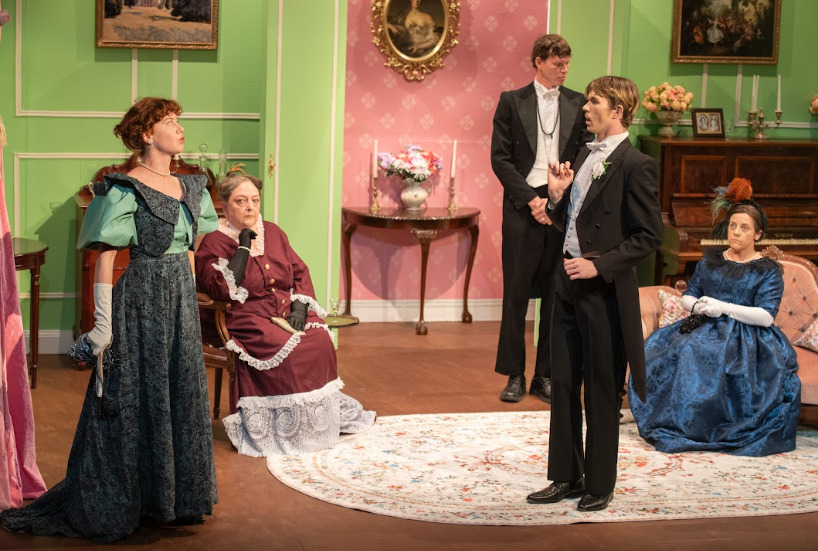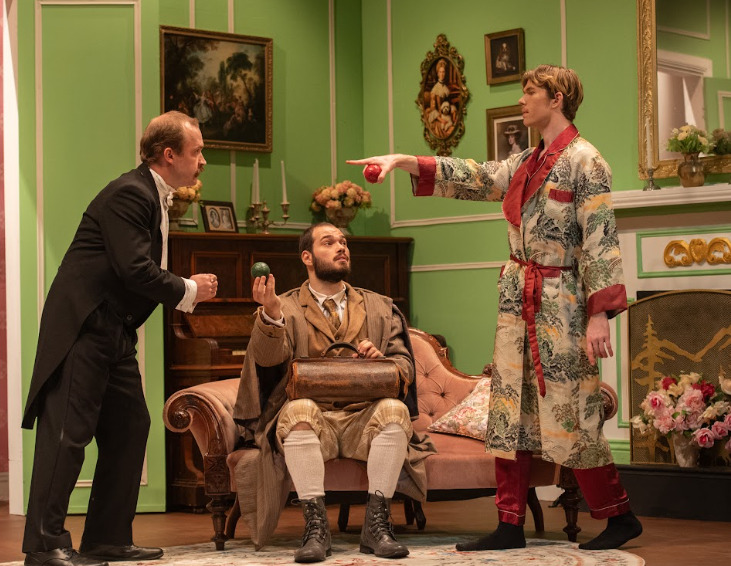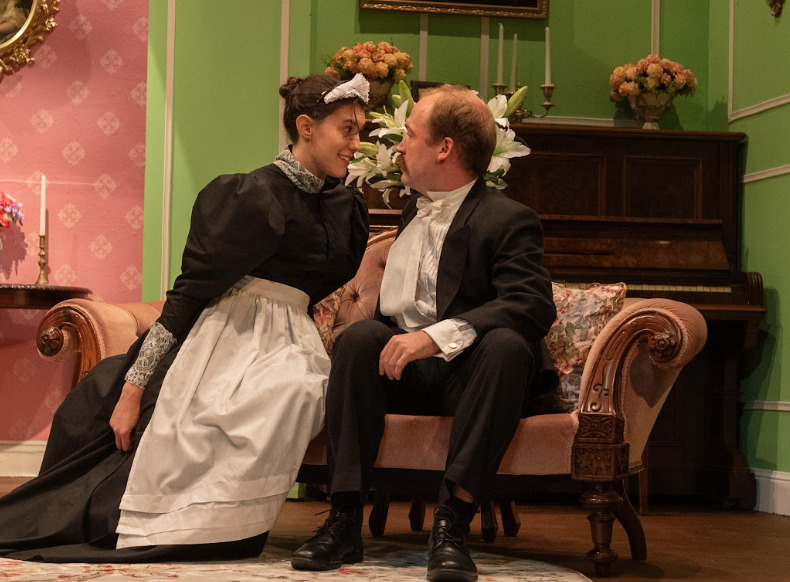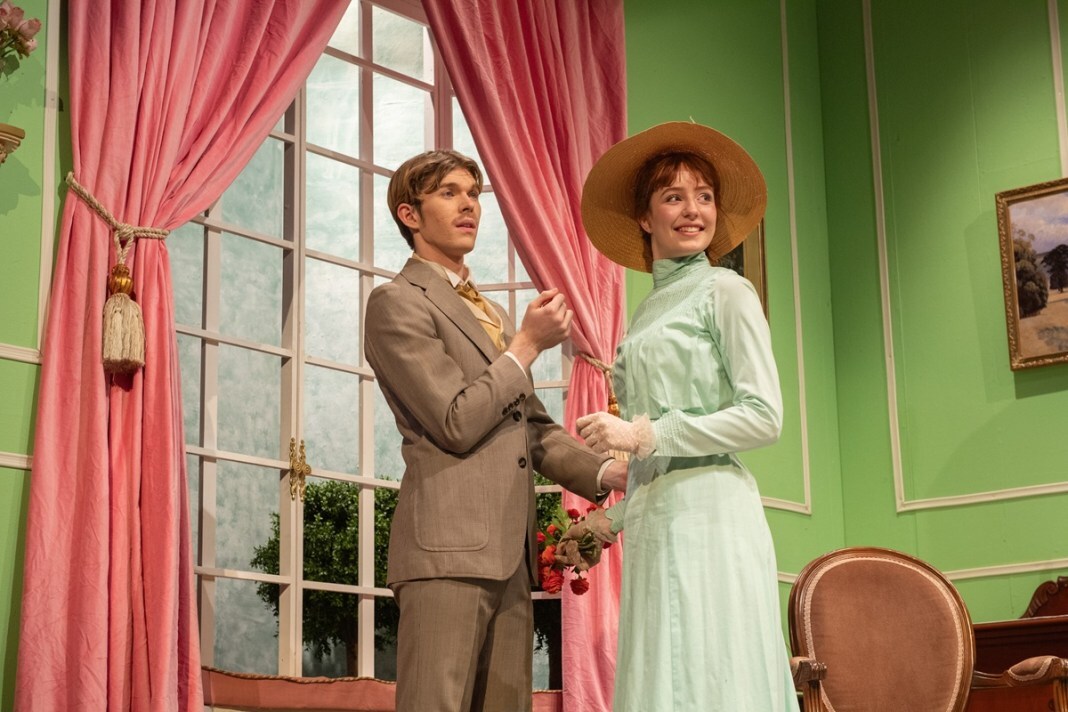To me, a ‘Whodunnit Mystery Murder’ should encompass suspense, have interesting characters – each one having a cloaked shadow of suspicion, unforeseen twists and of course, an untimely demise. The Castle Hill Players performance of Rehearsal For Murder had all of this, and more.
Set in the 1950’s in an empty theatre on New York City’s Broadway, director Grant Brennan and the cast and crew drew us back to a time on the cusp of colour television where viewers were used to watching dramas in black and white. This theme was well integrated into the play, noticeable in the costume design of the main characters’ clothes which were all grey. Far from being a dull grey through, costume designer Leone Sharp ensured a timeless and classic feel.
The play opens with the narrator, Alex Dennison (wonderfully portrayed by Thomas Southwell) a successful playwright who lost his fiancé to an apparent self-harming circumstance one year ago. On this anniversary, he has invited his Broadway colleagues to partake in the reading of a new play he’s written, one which coincidentally, (or not so), involves the people who were last involved with his fiancé, actress Monica Welles shortly before her death. Alex’s script plays out certain circumstances that involve Monica and the characters and allows the audience to immediately see that they all have a motive to murder her!
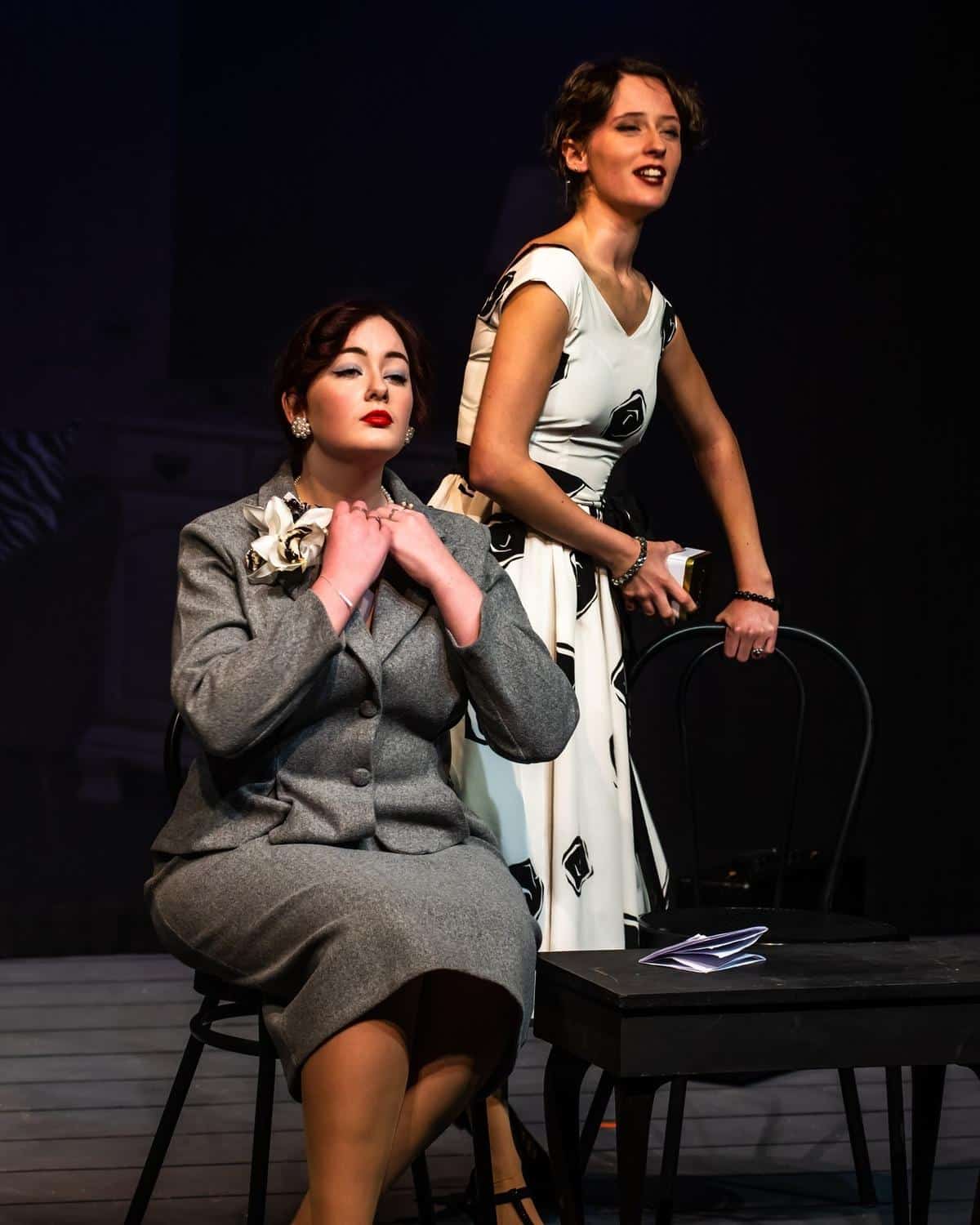
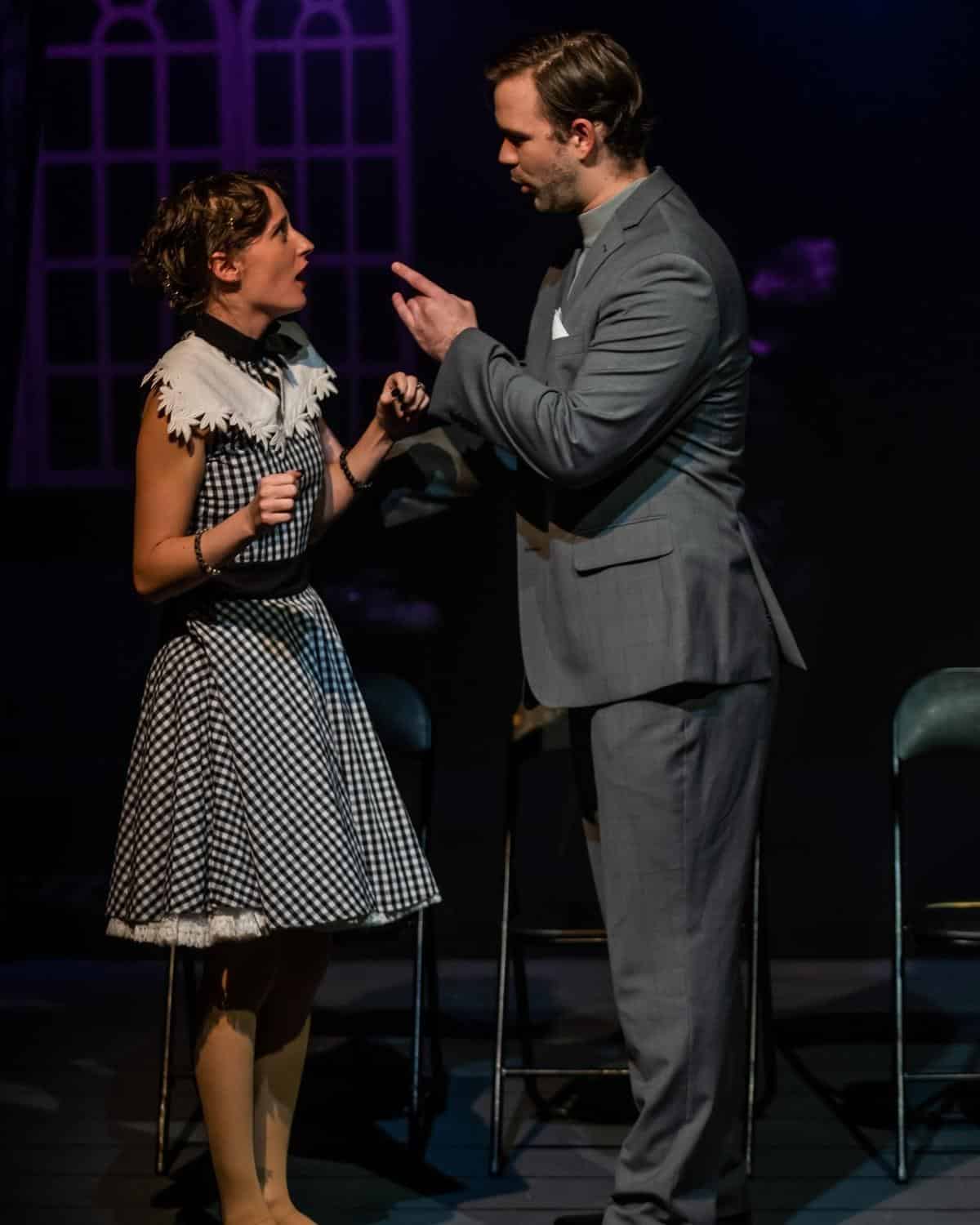
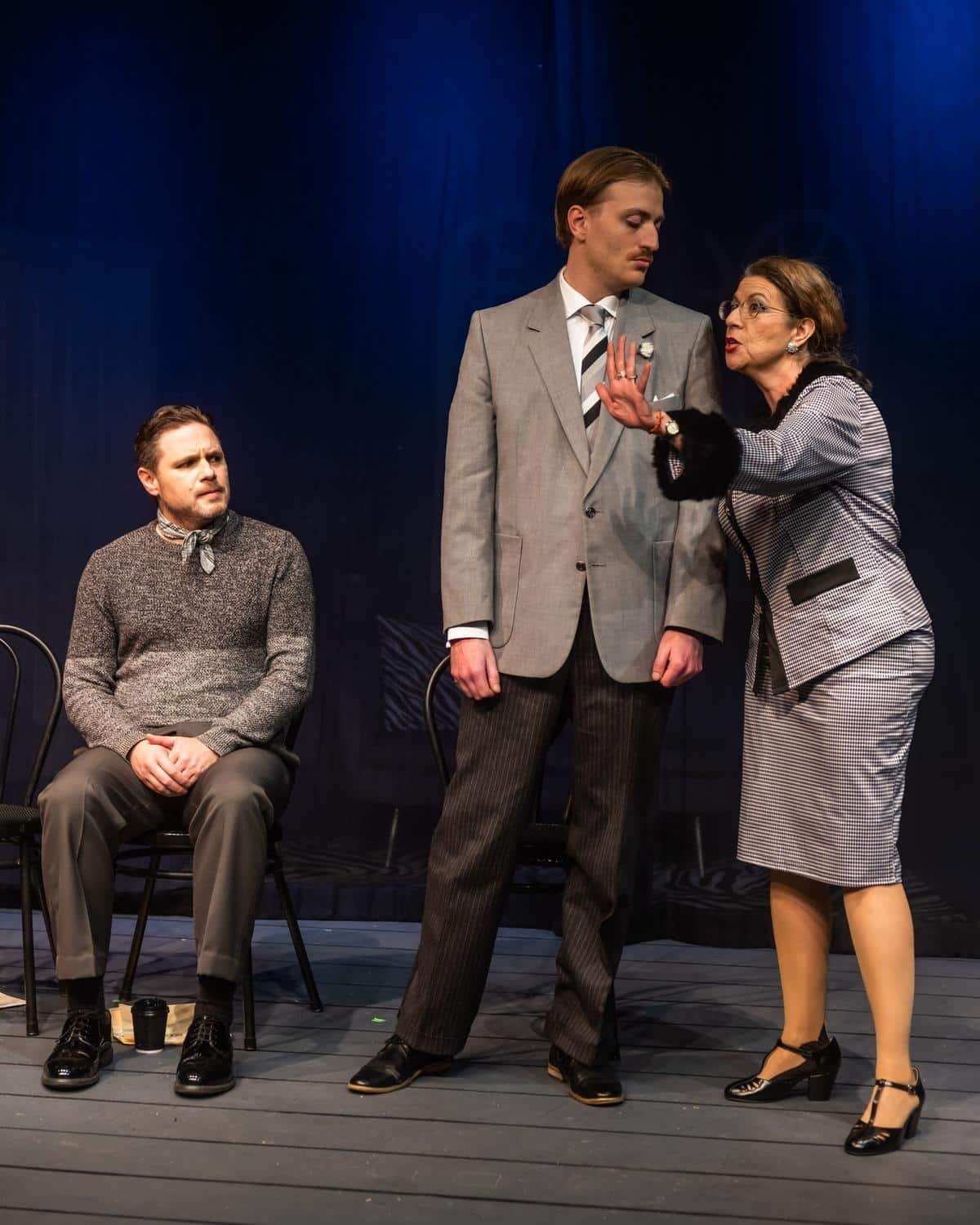
Through cleverly orchestrated visual and audio theatre, the audience becomes involved with the plot, questioning who would benefit from Monica no longer being in the Broadway play. Who’s the murderer? Was it the best friend, Monica’s understudy? Her husband? The producer, an actor, director or the leading man? Through clever use of lighting (by Casey Moon-Watton) dimming and spotlighting at opportune moments, combined with sound effects and the use of The Pavilion Theatre’s space around the audience, it produced a dynamic atmosphere.
Showcasing the typical music of the time, sound designer George Cartledge creates a feel reminiscent of an olden-days radio drama. Alex Dennison narrates the play to the audience, with the backdrop of the music underlying his words. Thomas Southwell’s calm demeanour as a narrator carries the play’s tone throughout the performance.
A standout from this play was from Gina Willison, who portrayed the producer, Bella Lamb. She states that she’s ‘not an actor’, but Alex forces her to read the script he’s prepared, and I sympathised with her indignation at what she was forced to do.
Monica Welles, portrayed with an innocence by Lola Carlton, appeared not in ghostly form but as herself in flashback scenes. It was clever the way the scene seamlessly blended into the past, with Monica interacting with the other characters, each time leaving another hint as to what may have happened to her.
Rehearsal For Murder has a big cast. Brett Watkins (Leo), Ben Wheeler (David), Ella Rose Titterton (Karen) Brett Joachim (Lloyd), Sophia Laurantus (Sally) David Senior (Ernie), Chris Scarpellino (Man) and Melissa Applin (Loretta) all portrayed their characters well and created an interesting storyline. I attended the opening night, and as the production progresses, the New York accent should become more consistent.
During the interval, I heard various audience members talking. They were guessing, calling out the names of characters of who they thought ‘dunnit’. I had a couple of theories, based on who I thought had the most motive. Did I guess right? This was one of the most fun parts of a murder mystery – so I won’t reveal if I was successful or not! You’ll have to see the Castle Hill Players performance to find out.
Rehearsal For Murder is playing at the Pavilion Theatre from 30 May – 21 June 2025. To book tickets to Rehearsal For Murder, please visit https://paviliontheatre.org.au/rehearsal-for-murder/.
Pavilion Theatre
Doran Drive, Castle Hill
Tickets: $30 / Concession $25
www.paviliontheatre.org.au



